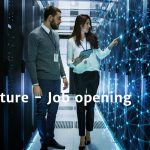Finland has set itself apart globally when it comes to the understanding and application of artificial intelligence (AI). At the heart of this sustained and purposeful effort is tech enabler and partner Reaktor, whose Elements of AI course continues to prove that AI is not just for industry.
In fact, what AI is proving to be in Finland is the perfect weapon to harness a “wild west” of opportunity. And in doing so, the country – and in particular its capital, Helsinki – is making the use of AI safer and more ethical.
AI is not just a tool for cryptocurrency, banking, marketing and high-level forecasting – artificial intelligence and machine learning, instead, are being sold in Finland as a universal model – a tool that can facilitate hobbies, occupations and areas of study across society.
The only difference between AI application in this broadest sense, and its current cliched perception, is education. And that is where Finland, more specifically Helsinki, Reaktor and Elements of AI are focusing their efforts.
Teemu Roos, professor of computer science at the University of Helsinki, who is lead instructor behind the Elements of AI course, said: “To use an example, I came across a student on the course whose hobby was sewing. She explained to me the art of drawing out patterns on paper and needing that vision ahead of time of what you’re looking to produce. She wanted to see if she could apply AI to this process, and I – not knowing anything about sewing at all – just said ‘go for it’.
“I’d say the same to someone in any of the arts, or manual labour, or bus driving, or any application you could possibly think of. The real big opportunity with AI isn’t what we see in thought leadership articles or in industry magazines, it’s this wild west of everyday use. And that’s why it’s so important for everyone to have at least a basic understanding of it.”
Roos is also the leader of the AI Education programme at the Finnish Centre for AI. And his championing of this “AI for everybody” notion has already led to more than 750,000 people choosing to learn – at least – the basics of artificial intelligence.
The overall programme comprises an Introduction to AI segment, and a Building AI portion, where students of all ages and from all backgrounds are firstly introduced to the basics of how artificial intelligence works, before delving into its applicatory attributes.
But perhaps the course’s most significant contribution to AI’s development in society is its focus on ethics.
Stories around biases when it comes to facial recognition or racial profiling are not uncommon in industry, but too few readers acknowledge the fact that computers are not biased. People are biased, and the data being fed into these machines would have to be skewed initially to yield such unfavourable results.
“I’d say there are equal amounts of information and misinformation out there,” said Megan Schaible, an American who moved from the UK to Finland after meeting entrepreneurs from Helsinki, and learning about the approach to tech development that existed there. Now, as COO of Reaktor, she is a trailblazer for the democratisation of technology and associated applications.
“Democratisation is all about creating something with every type of end-user in mind – something that users of AI don’t always do, and that many people don’t know enough about,” said Schaible. “For example, of all the people who have taken a massive open online course with Harvard and MIT, it was found that 85% of them already had a bachelor’s degree.
“So often, tech courses are marketed as something that is democratising education, when really they’re just exacerbating the gap – something that makes no sense when the tools in question do apply to, and do impact, everyone.”
Of Elements of AI’s 750,000 students, 40% are women – almost double the average of other online computer science sources. And, as Roos noted, a vast portion come from backgrounds outside of academia, or data science or high-level enterprise. They are simply members of the population who either want to learn about the artificial intelligence wave that is impacting how they make choices in their everyday lives; or to find ways to apply it to their own situations and activities.
“Or both, hopefully,” said Schaible.
Business behaviours
This focus on ethics and democratisation is not just significant from an everyday user perspective, either. Evolving parallel to trends such as sustainability (in all its forms), data privacy, cyber security and ethical sourcing, as more people become aware of the pitfalls or misuses associated with AI, it will force those organisations currently dominating the AI conversation to behave more responsibly.
“This aspect of consumer power and pressure is especially important, as it can only come from education and knowledge,” said Schaible. “But to create a more general understanding of ethics in AI is to also help protect businesses that have perhaps fallen into traps when developing their infrastructures or strategies.
“Here in Europe, the EU especially is likely to hit down hard on companies that fail to meet certain standards around AI democratisation, as this trend evolves. So, in this vein, EU countries and businesses have an opportunity to get ahead of the curve and be a bit more proactive about how to tailor these solutions for the benefit of everyone, not just certain demographics.”
From Finland to the world
But why is Finland leading the way?
Schaible chose to make Helsinki her home in the knowledge that inclusivity in the tech realm would be a viable model there. It isn’t the case everywhere, and Roos even said the uptake for Elements of AI could only be so high in Finland.
He added: “We have a global uptake of the course, but I have noticed that people from English-speaking countries find it more difficult to read a block of information, think critically about it, and then form their own opinion, than Finnish-speaking students.
“In Finland, I think our school system prepares people well for being able to critically read packets of information and not just take things at face value. And once you get past the basics of what AI is, that really gives people an advantage to dissect, whether its use is ethical or reliable, or not.”
Essentially, Helsinki has become a non-hierarchal, tech-savvy and socially inclined hub, promoting how the future of AI should look. The fact that the influence of Reaktor and Elements of AI is already international (and growing) is hugely promising, but it continues to be underpinned by the Finnish domestic population, of which more than 4% have now taken the course, said Schaible.
“When you build something that is for all people, you see results on the other side that are much more impactful,” she added. “In a way, that’s a great reflection of why AI needs to be democratised in the first place.
“We missed the boat with the internet and it just sort of took over without requisite regulation or control. With AI, we know both the positive and negative implications these technologies can have, so to work with people from all backgrounds to take control of that situation can only be a good thing.”
In essence, Finland is leading the charge to both champion, and tame, that AI wild west.














